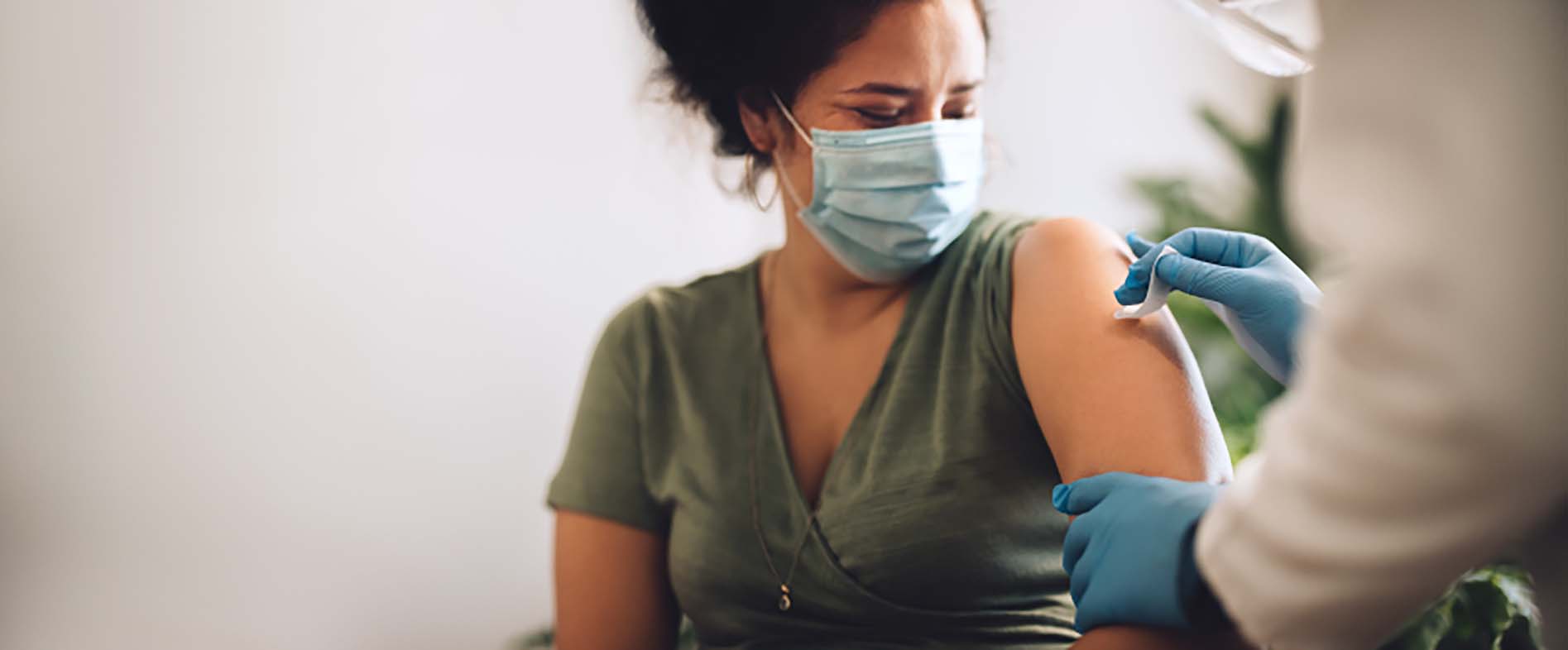How vaccines help keep communities healthy
Physical HealthArticle29 April 2022
The last week of April marks World Immunisation Week. A time to raise promotion and awareness globally about the importance of vaccines to protect people of all ages. With the COVID pandemic upon us, we are reminded now more than ever about the power of vaccines to keep us and those around us safe.
Why vaccination is important
Vaccination is a good prevention policy when it comes to keeping people and communities healthy. When you get vaccinated, you play an important role in keeping yourself and others safe, especially those who cannot be immunised. When enough people in the community are vaccinated against a specific pathogen, transmission slows down or stops all together – pretty powerful stuff! This creates community immunity and helps to save lives and protect friends, families and others.
Thanks to vaccination many infectious diseases are rare or no longer active. For example small pox, a severe deadly and contagious disease was eradicated in 1980 through an intensive global vaccination plan1. However, some infectious diseases still exist and outbreaks of new diseases such as COVID-19 show the importance of vaccines today in protecting health and controlling the virus spreading.
How do vaccinations work?
All vaccinations work in the same way, stimulating your immune system to create a protective response to an infection before you’ve been exposed to it. Antigens, which are weakened or inactive fragments of an organism (mostly viruses) such as COVID-19, are introduced into the bloodstream to trigger an immune response. Antibodies are then created to fight against this specific antigen and protect the body when it encounters the real infection2. The protective immune response created by immunisation typically mimics the body’s natural response to infection - but most importantly, avoids the harmful consequences of infection. If you do come into contact with an infection after you’ve been vaccinated, your body works to stop you from getting the disease or depending on the number of antibodies you’ve built up, you may get a less severe infection.
Ongoing or yearly vaccinations are required for certain viral conditions such as the influenza virus, and now possibly the SARS CoV-2 (COVID-19) virus. Yearly vaccinations are required as viruses can mutate and bypass the antibodies previously formed by the body, allowing the virus to replicate freely.
The truth about vaccines
Some people may be vaccine hesitant, but the truth is all vaccines are rigorously tested and regulated.
- Vaccinations are rigorously tested to demonstrate their safety and effectiveness in protecting against infectious disease.
- Vaccinations can have side effects, but every suspected side effect is monitored and documented. Information about potential complications is provided to the medical professionals who administer the vaccines and a risk analysis of disease versus vaccine complication is weighed up for each individual.
- Vaccines are registered in accordance with the Therapeutic Good Administration (TGA) in Australia prior to use. This is in accordance with safety guidelines and protocols , utilising global data3.
Spotlight on COVID-19 vaccination
While much is still to be learnt about COVID-19, vaccines have proven to be very effective in preventing disease severity and Long COVID (or as it is now known , Post Acute Sequelae Covid or PASC). Studies have shown an efficacy of up to 95% in preventing severe illness after two doses of vaccine. Studies have also shown that over time, the efficacy against the virus wanes. For this reason, a third dose of vaccine has been recommended as it reduces the chances of severe COVID-19 by at least 10 fold. To date 57,480,000 COVID Vaccines have been given to the Australian population with more than 95% of the population receiving two doses. There is still a way to go with just over 69% having received three doses as of 26th April 20224.
Help stop the flu in 2022
This month the Australian Government initiated a campaign to boost flu vaccination. The campaign is called “Help stop the flu in 2022.”
The campaign notes that this year, it’s even more important to get the influenza vaccine as we are more vulnerable. This is due to lower recent exposure to the influenza virus and lower uptake of influenza vaccines in 2021. With international borders reopening, it’s likely we will see more influenza in 20225.
Yearly influenza vaccination is recommended for people aged 6 months and over.
We are lucky enough to live in a world where science and medicine have created vaccine preventable diseases. It’s essential we keep our immunisation on track to protect ourselves and those around us. To find out more about immunisation or protection against influenza, it’s best to speak with your health professional. Remember, healthy communities are dependent on a healthy you.
References:
- https://www.who.int/health-topics/smallpox#tab=tab_1
- https://www.who.int/news-room/feature-stories/detail/how-do-vaccines-work
- https://www.health.gov.au/sites/default/files/full-publication-myths-and-realities-5th-ed-2013.pdf
- https://www.health.gov.au/initiatives-and-programs/covid-19-vaccines
- https://www.health.gov.au/health-topics/immunisation/vaccines/influenza-flu-vaccine



